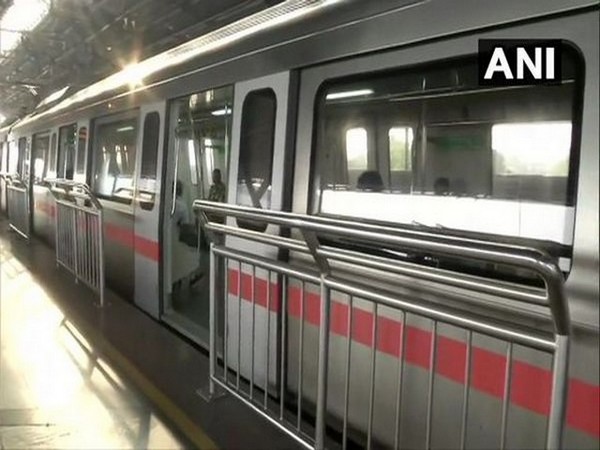Delhi Metro station access and mobility programme launched
Crafting this for commuters will require a participatory approach from several stakeholders. DMRC Managing Director Vikas Kumar said that through the STAMP Challenge, DMRC is working to build smart and safe mobility solutions for commuters and last-mile partners.As Indian cities invest more in metro rail, they also need to invest in creating an enabling environment for innovative enterprises that provide services which allow commuters to complete their last mile journeys in affordable, seamless ways, Executive Director at WRI India Ross Center Madhav Pai said.

- Country:
- India
The Delhi government and Delhi Metro Rail Corporation (DMRC), in association with Toyota Mobility Foundation and World Resources Institute India, launched an initiative aimed at improving multi-modal integration to and from the metro rail network, according to a statement on Thursday.
The Station Access and Mobility Programme (STAMP) in Delhi is the seventh edition of the initiative by TMF and WRI India, launched in December 2016, to facilitate high-quality last-mile connectivity solutions across Indian cities.
The programme aims to encourage better uptake of public transportation, multi-modal mobility, data-driven planning and carbon-reducing technologies by utilising a challenge framework that identifies innovation and sustainable business models to improve accessibility to mobility.
According to the WRI statement, STAMP Delhi's work will aim to target three focus areas. First, it aims to create a mobility-as-a-service platform that will allow commuters to plan their public transport journey, across different transit modes, on a single interface.
Secondly, STAMP is working to leverage existing last-mile services such as shared mobility, autos and e-rickshaws to provide more efficient on-demand services to commuters. The interface will provide crucial information to drivers in under-served areas and times of high demand, allowing them to provide better last-mile services to commuters.
Thirdly, STAMP is looking to partner with upcoming last-mile operators with innovative form factors to improve metro connectivity, particularly in areas with limited access to e-rickshaws and shared transport.
Speaking about the initiative, Principal Secretary and Commissioner of the Delhi Transport Department Ashish Kundra said, ''The future of transport in the city lies in developing an integrated mobility-as-a-service solution. Crafting this for commuters will require a participatory approach from several stakeholders.'' DMRC Managing Director Vikas Kumar said that through the STAMP Challenge, DMRC is working to build smart and safe mobility solutions for commuters and last-mile partners.
''As Indian cities invest more in metro rail, they also need to invest in creating an enabling environment for innovative enterprises that provide services which allow commuters to complete their last mile journeys in affordable, seamless ways,'' Executive Director at WRI India Ross Center Madhav Pai said.
(This story has not been edited by Devdiscourse staff and is auto-generated from a syndicated feed.)
ALSO READ
Delhi's Aggressive Crackdown on Air Pollution Breaches Under GRAP-IV
Delhi Minister Slams Opposition for Personal Attacks, Urges Focus on Issues
Charges Framed in Attack on Delhi CM Rekha Gupta
Indian Super League Clubs Push for Perpetual Ownership: AIFF Sets Up Resolution Committee
Delhi Police Unravels Overseas Job Scam, Accused Arrested










